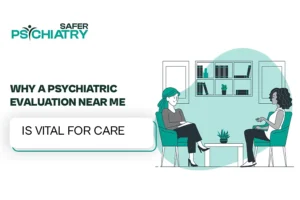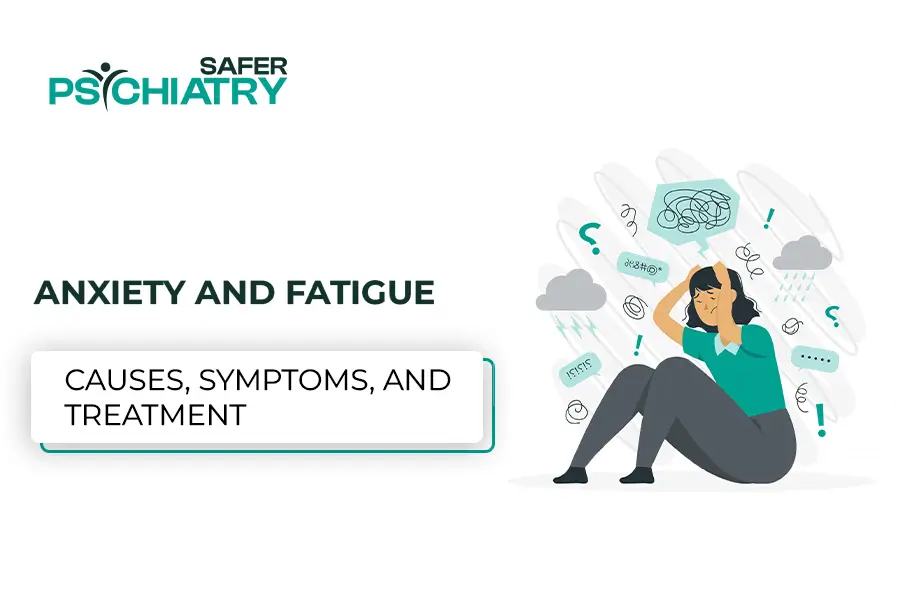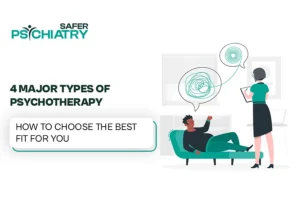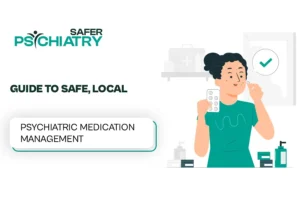
Anxiety and Fatigue - Causes, Symptoms
and Treatment
At Safer Psychiatry, we provide compassionate, evidence – based mental health care to support your well-being now and for the future – because your journey matters, and so do you.

- Anxiety and fatigue are strongly connected through the body’s stress response.
- Sleep disturbances, chronic stress, and lifestyle factors worsen fatigue.
- Treatment involves therapy, medication, lifestyle changes, and relaxation techniques.
- Early professional intervention can improve outcomes and quality of life.
Anxiety and fatigue are closely intertwined, often occurring together to affect mental and physical well-being. Anxiety is characterized by excessive worry, fear, or nervousness, while fatigue refers to persistent tiredness or exhaustion.
Understanding the relationship between these two symptoms is crucial for effective treatment and improving quality of life.
How Anxiety Causes Fatigue
Anxiety triggers the body’s stress response, activating the sympathetic nervous system and releasing stress hormones like cortisol and adrenaline. This prolonged state of “fight-or-flight” can lead to:
- Increased heart rate and blood pressure
- Depletion of energy stores
- Muscle tension and aches
- Sleep disturbances and poor rest
Over time, these physiological effects can lead to chronic fatigue, leaving individuals feeling exhausted even after adequate rest.
Common Symptoms of Anxiety and Fatigue
Individuals experiencing anxiety and fatigue may notice:
- Persistent tiredness or lack of energy
- Difficulty concentrating or “brain fog”
- Racing thoughts or constant worry
- Muscle tension, headaches, or body aches
- Sleep disturbances such as insomnia or restless sleep
- Emotional irritability or low mood
- Weakness or fatigue after minor physical activity
Causes of Fatigue in Anxiety
Several factors contribute to fatigue in individuals with anxiety:
- Sleep disturbances: Racing thoughts or night-time worry can prevent restorative sleep.
- Reduced physical activity: Anxiety may cause avoidance of activities, lowering energy levels.
- Dietary and lifestyle changes: Skipping meals, caffeine overuse, or alcohol consumption can worsen fatigue.
- Stress hormone imbalance: Chronic activation of cortisol and adrenaline depletes energy reserves.
Anxiety and Fatigue During Specific Conditions
Some life situations or health conditions can intensify anxiety-related fatigue:
- Before menstrual periods or during ovulation
- After exercise or physical exertion
- During panic attacks
- In social anxiety or chronic anxiety disorders
- Coexisting depression or health anxiety
Managing Anxiety and Fatigue
Addressing anxiety and fatigue requires a holistic approach combining lifestyle, therapy, and medical interventions:
- Sleep Hygiene
- Maintain a consistent sleep schedule
- Avoid screens 1–2 hours before bed
- Limit caffeine, alcohol, and heavy meals at night
- Create a calm, dark sleeping environment
- Relaxation Techniques
- Deep breathing exercises to activate the parasympathetic nervous system
- Mindfulness meditation to focus attention on the present
- Grounding techniques to manage acute stress or panic
- Physical Activity
- Regular exercise improves energy and reduces stress
- Activities like yoga or walking can help manage anxiety symptoms
- Exercise supports mitochondrial function and overall alertness
- Cognitive Behavioral Therapy (CBT) helps manage anxious thoughts and improve coping skills
- Supportive therapy for emotional and behavioral guidance
- Medication
- Antidepressants, anti-anxiety medications, or sleep aids may be prescribed
- Medication combined with therapy often yields the best outcomes
- Nutrition and Supplements
- Balanced diet to support energy levels
- Magnesium may help reduce fatigue and support relaxation
- Avoid excessive caffeine or sugar spikes that worsen anxiety
When to Seek Professional Help
Persistent anxiety and fatigue affecting daily life consultation with a healthcare provider or mental health professional. Early intervention can prevent chronic fatigue, burnout, and worsening mental health.
Flags include:
- Severe exhaustion despite rest
- Inability to perform daily tasks
- Panic attacks or extreme anxiety interfering with work or relationships
- Mood changes, irritability, or depression symptoms
Final Thoughts
Anxiety and fatigue can important impact daily functioning and well-being. Understand their relationship and implementing a comprehensive treatment plan can restore energy, improve mental health, and enhance overall quality of life. Early professional support is key to manage both symptoms effectively.
Struggle with anxiety and fatigue? Safer Psychiatry offer personalized care plans, therapy, and medication management to help you regain your energy and mental wellness.
Contact our clinic today to schedule your anxiety consultation.
FAQ
Frequently Asked Questions
Does anxiety make you tired?
Yes. Anxiety activates the stress response, causing chronic fatigue and low energy levels.
Can anxiety cause extreme tiredness after a panic attack?
Absolutely. Panic attacks can leave the body in a prolonged “fight-or-flight” state, leading to exhaustion.
What treatments are effective for anxiety and fatigue?
Treatment includes CBT therapy, medications, lifestyle modifications, sleep hygiene, and stress management techniques.
Can supplements help with anxiety-related fatigue?
Magnesium, B-vitamins, and other nutrients may support relaxation and reduce fatigue, but always consult a healthcare provider first.
Is anxiety-related fatigue the same as chronic fatigue syndrome?
No. Chronic fatigue syndrome is a medical condition with persistent fatigue unrelated to stress or anxiety, though symptoms can overlap.
Our Company
Copyright © 2024 Safer Psychiatric Consulting Services


